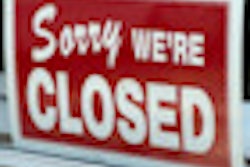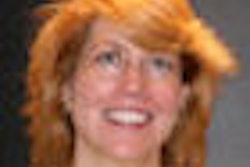
Editor's note: Helaine Smith's column, The Mouth Physician, appears regularly on the DrBicuspid.com advice and opinion page, Second Opinion.
A few weeks ago on ABC's "20/20" news program, Diane Sawyer did a wonderful story about the lives and struggles of people living in Appalachia. It was eye-opening and extremely sad.
One part of the story profiled "heroes," including Edwin Smith, D.M.D., who has dedicated his time and skills to the people of Appalachia. (Dr. Smith founded Kids First Dental Care in Kentucky in 2004 after collaborating with school personnel to explore ways to provide dental care to school children.) A major problem there is that they drink so much Mountain Dew that their teeth are completely decayed. He tries to educate teens about tooth decay, the hazards of drinking too much soda, better oral care, and more.
I was so impressed that Sawyer referred to him as a doctor and that dentistry was portrayed on national television the way it should be: with respect. I truly thought we had turned a corner. It was a wonderful compliment to our profession. A sincere thank you to Dr. Smith, who is using his talent in such a humanitarian way and is truly a mouth physician.
Just two weeks later, however, "20/20" followed up with an exposé on dentists allegedly doing unnecessary work and torturing children who were part of the Medicaid system. They showed children crying and papoose boards being used. (As if children do not cry in a pediatrician's office or a hospital!) One "expert witness" in the story was a dental assistant who stated that dentists in the clinic where she had been employed were doing work that was not needed. The dentists' side of the story was glossed over, and the slant that "20/20" took was the same old vindictive view the media often uses against us.
Shame on "20/20" for airing this story. Did the producers of the segment go to dental school? How can they diagnose the children's dental condition? The children in the story were lower-income state aid recipients, and I am sure that many had rampant decay and did need pulpotomies.
At least once a year the media reports about a child dying from a tooth abscess or other dental issue, and portrays the dental profession as uncaring and greedy. Meanwhile, the mother and father are often homeless or out of work, and do not take the child to the hospital until he or she is septic. But this is never part of the story.
And then there are the stories about dentists who abuse the Medicaid system. How come the media do not profile the numerous dental offices -- the overwhelming majority -- that do treat Medicaid patients and do not commit fraudulent billing?
There is a growing trend by the media and the ADA to focus on the underserved dental population. In a previous blog post, I stated that I do not feel a hygienist with expanded duties -- a midlevel practitioner -- is capable of extracting teeth and filling cavities. This is not the solution to providing care to this population.
Five new dental schools are opening in the U.S. in hopes of fulfilling the dental needs in this country and closing the gap in access to dental care. One of those schools is opening in Portland, ME, in the southern part of the state -- several hours from where the bulk of the needy are located, in rural north and western Maine. Tufts Dental School annually takes a team to do volunteer dentistry for the poor in Maine and, from what I hear, the situation could rival the stories in Appalachia. The lack of dental care is so prevalent in Maine that they have started teaching basic dental care to medical residents there to try to combat this tremendous problem.
I would like to see government-funded clinics set up in rural areas and inner cities. The dentists would be salaried, eliminating the incentive for fraud. They would have a contract with a two- or three-year commitment and an offer of a reduction of their student loan repayment (similar to an armed forces commitment). It would be a way to offer care to the poor and a supportive learning environment for new graduates.
This scenario would not take business away from existing practices; there is enough Medicaid to go around. And most important, government money would be used wisely and efficiently to help the people.
The lack of access to dental care is only going to worsen. We need to be proactive in offering solutions. Otherwise, this issue will be addressed by Washington bureaucrats, and I fear what their answers might be.
The comments and observations expressed herein do not necessarily reflect the opinions of DrBicuspid.com, nor should they be construed as an endorsement or admonishment of any particular idea, vendor, or organization.
Copyright © 2009 DrBicuspid.com



















